As of 2011 [update] , there were 21,638 hospitals in China, [1] [2] forming an important part of the country's healthcare system. The most notable hospitals are listed below for each province of China.
As of 2011 [update] , there were 21,638 hospitals in China, [1] [2] forming an important part of the country's healthcare system. The most notable hospitals are listed below for each province of China.
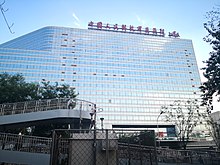
There are over 300 hospitals in Gansu Province. The following are some of the notable hospitals in Gansu Province: [4]

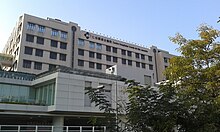
 |

Gansu is an inland province in Northwestern China. Its capital and largest city is Lanzhou, in the southeast part of the province.

Lanzhou is the capital and largest city of Gansu province in northwestern China. Located on the banks of the Yellow River, it is a key regional transportation hub, connecting areas further west by rail to the eastern half of the country. Historically, it has been a major link on the Northern Silk Road and it stands to become a major hub on the New Eurasian Land Bridge. The city is also a center for heavy industry and petrochemical industry.
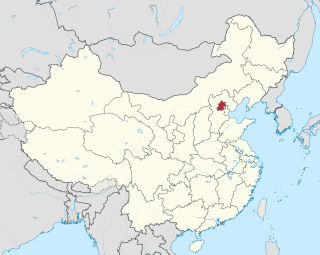
Beijing is a municipality located in North China at the northern tip of the North China Plain, near the meeting point of the Xishan and Yanshan mountain ranges. The city itself lies on flat land that opens to the east and south. The municipality's outlying districts and counties extend into the mountains that surround the city from the southwest to the northeast. The highest peaks are over 2,000 m (6,600 ft).

China Medical University is a public medical university in Shenyang, Liaoning, China. The university was the first medical school established by the Chinese Communist Party. The predecessor of the university was the Military Medical School of the Chinese Workers' and Peasants' Red Army founded in Ruijin, Jiangxi Province in November 1931.

The Ministry of Education of the People's Republic of China is a constituent department of the State Council, responsible for basic education, vocational education, higher education, and other educational affairs throughout the country. The Ministry of Education acts as the predominant funder of national universities and colleges in China. The ministry also accredits tertiary institutions, degree curriculum, and school teachers of the country.
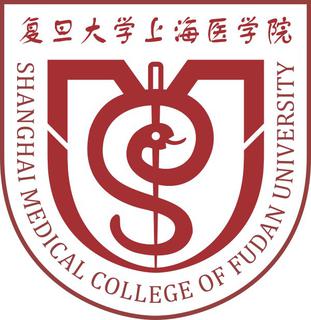
The Shanghai Medical College, Fudan University, formerly the independent Shanghai Medical University (SHMU), is one of the oldest and most prestigious medical schools in China. Clinical medicine of the Shanghai Medical College of Fudan University is consistently ranked among the top three medical schools in China and #45 globally by Times Higher Education World University Rankings as of 2022. Its "Clinical Medicine" also ranked #73 globally by the U.S. News & World Report globally.
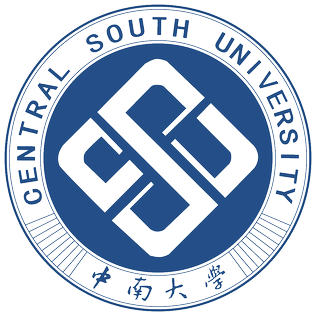
Central South University is a public university in Changsha, Hunan, China. The university is affiliated with and funded by the Ministry of Education of China. It is part of Project 211, Project 985, and the Double First-Class Construction.
Pharmacy in China involves the activities engaged in the preparation, standardization and dispensing of drugs, and its scope includes the cultivation of plants that are used as drugs, the synthesis of chemical compounds of medicinal value, and the analysis of medicinal agents. Pharmacists in China are responsible for the preparation of the dosage forms of drugs, such as tablets, capsules, and sterile solutions for injection. They compound physicians', dentists', and veterinarians' prescriptions for drugs. Pharmacological activities are also closely related to pharmacy in China.
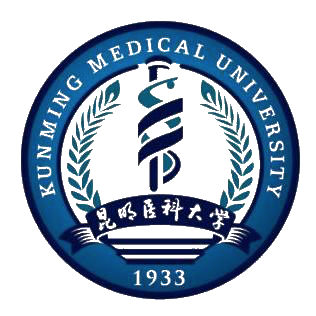
Kunming Medical University, previously known as Kunming Medical College, is a medical school located in Kunming City, Yunnan Province, China.
Nanjing Medical University is a provincial public university in Nanjing, Jiangsu, China. It is affiliated with the Province of Jiangsu. The university is part of the Double First-Class Construction.

Han Qide is a Chinese physician and politician. Han is currently the chairman of the Jiusan Society and a member of the Chinese Communist Party. He was the vice chairman of the Standing Committee of the National People's Congress and is the vice chairman of the National Committee of the Chinese People's Political Consultative Conference. He is also the president of the Chinese Society for Science and Technology.

The China-Japan Friendship Hospital also abbreviated as China-Japan Hospital was established through the cooperation of the Chinese and Japanese governments during the 1980s. The hospital has been directly affiliated with China's Ministry of Health since its first day of operation, October 23, 1984. The hospital is located on East Yinghuayuan Street, Chaoyang District, Beijing. The hospital covers 9.7 hectares, with floorspace of facilities measuring 180,000 square metres (1,900,000 sq ft). Within the hospital, there are 1,500 beds, 58 departments, as well as a clinical research and education center. The hospital has intensive care and treatment of severe diseases as a primary focus and integrative eastern-western medicinal therapy as an additional area of expertise. The hospital often attends to the health care of senior officials from over 100 countries and regions.
Peking University Health Science Center is the medical school of Peking University, which has 14 affiliated hospitals in Beijing, China. It was formerly the independent Beijing Medical University between 1952 and 2000.
The Nanjing University of Chinese Medicine is a provincial public university in Nanjing, Jiangsu, China. It is affiliated with the Province of Jiangsu. The university is part of the Double First-Class Construction.

Puhua International Hospitals (PIH) was the first international-standard hospital service established in Beijing. It was originally established in 1993 as a joint venture between Asia Pacific Medical Group (APM) and Beijing Tiantan Neurological Hospital, making it the first international joint venture hospital service to operate in China. From the original Tiantan location, the Puhua network has expanded to include Puhua International Hospital – Shuangjing and Puhua International Hospital – TEDA. All facilities cater to both international and Chinese patients.
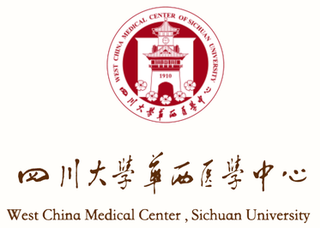
The West China Medical Center, Sichuan University, formerly the West China University of Medical Sciences, is a prestigious world-class public research institution of medical sciences located in Chengdu, Sichuan, China.
"International clinic" is a colloquial term used by expats in China for a privately owned clinic or hospital that possesses specific characteristics, which separates it from the various domestic healthcare establishments. International clinics are generally much more expensive than public hospitals and will be able to accept non-Chinese insurance. In Beijing, there are a number of such companies, the most prominent being Puhua International Hospital - Shuangjing, Beijing United Family Hospital and International SOS.

The Ming-Ai (London) Institute is the executive arm of the Ming-Ai Association, established in 1992 to promote Chinese culture locally and deliver cultural exchanges between the United Kingdom and Greater China.